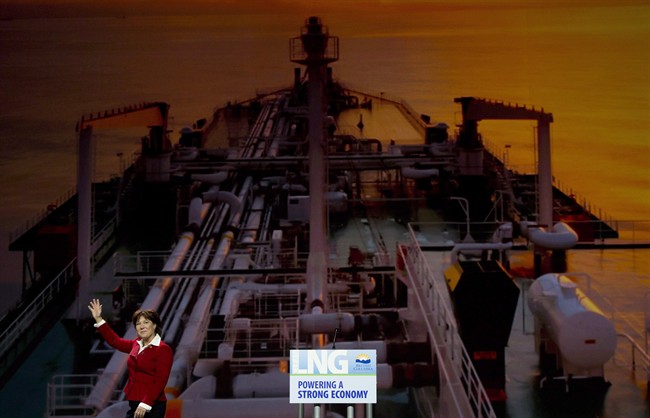The new federal government is about to face its sternest test yet when it comes to controversial energy projects, and whatever its decision is it will have a huge impact on British Columbia and potentially the B.C. Liberal government as well.

I’m referring to the proposed $12 billion Pacific Northwest LNG facility near Prince Rupert. The Trudeau government has decided to extend a federal environmental review of the project by up to three months, although there’s a chance it will go to the federal cabinet by mid-April.
If the federal Liberals nix the project — which is controversial chiefly because of its potential impact on a local habitat for juvenile salmon — it would no doubt greatly strain relations between Ottawa and the B.C. government.
The B.C. Liberals are banking on at least one major LNG project to be green-lighted by both investors and various regulatory agencies by the time the next provincial election campaign kicks into gear in the spring of 2017.
The Pacific Northwest LNG project is considered to be the front-runner among the various proposed LNG projects, although its major investor – Malaysian energy giant Petronas — has yet to make its “final investment decision”, which is apparently very close to being made one way or another.
The federal government was supposed to make a final decision on the project this week, but it’s now buying more time after the federal environmental assessment agency requested it do so after more information about the project was released by the company.
The agency is also said to be suddenly concerned by the fact the LNG facility will be constructed during nighttime, even though details of the construction schedule has been in the project filings for more than a year.
The agency has already concluded the project will not cause major ecological damage (although it will have an adverse affect on fighting climate change and on local harbor porpoises).
And, in an important 11th-hour twist to this long-running saga (the review itself is nearing 1,000 days) the chief First Nations band in the area — the Lax Kw’alaams First Nation — just recently offered conditional support for the project, after at first rejecting it.
Clouding the picture further is a letter signed by various academics, scientists and those affiliated with environmental organizations, calling on the government to essentially ignore its own scientists (something the federal Liberals rightly condemned former PM Stephen Harper of doing) to appease the anti-LNG lobby.
But the sudden support by First Nations for the project may trump any concerns voiced rather late in the day by many of the usual suspects who oppose pretty well all forms of natural resource development.
The key stumbling block, from Ottawa’s perspective, is likely not the potential impact on salmon stocks but instead is its impact on reaching greenhouse gas reduction targets.
The stakes here are huge, both economically and politically. A multi-billion investment that creates thousands of well-paying full-time jobs would not only galvanize the northern B.C. economy, but it may make the federal Liberal Party brand a more friendly one in areas of the province usually averse to supporting the party.
A rejection by the federal government — or, perhaps more likely, a decision simply to drag out an environmental review until the investors tire of the whole process and simply walk away — could send a strong anti-energy development message that may reverberate throughout the international energy community.
There’s a reasonable chance to assume the fairly good relations between the Prime Minister’s Office and the B.C. Premier’s Office (where top aides have strong ties to the federal Liberal Party) may resolve this lingering impasse in B.C.’s favor.
The new prime minister is likely finding it harder to make a call on energy megaprojects like this one than dealing with more trivial challenges such as making a positive impression on a visit to the U.S. White House. One involves heavy lifting, the other a lot of smiling.
The ball is still in the Trudeau government’s court. In the meantime, the Christy Clark government is feverishly hoping it will still get a chance to join the game.



Comments